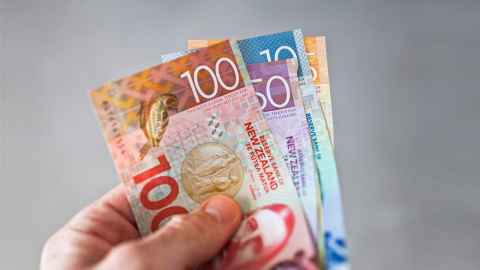Go forth and multiply… your spending
5 June 2020
Opinion: Tim Hazledine on how and why households must spend.

President Ronald Reagan’s pet economist was Arthur Laffer - he of the eponymous, fantastical Laffer Curve. General Pinochet in Chile favoured Milton Friedman and his ‘Chicago Boys’. In New Zealand, Sir Roger Douglas’s favourite economist was Roger Douglas.
But of all the leaders who imposed extreme right-wing, ‘neoliberal’ regimes on their people in the bad old years of the 1980s, the one with the best taste in economists was Margaret Thatcher. Her guru was the distinguished Austrian-born economist Frederick Hayek (1899-1992), who is often referred to as the patron saint of neoliberalism.
Hayek - a brave and decent man - published his famous, best-selling polemic, The Road to Serfdom, in 1944. He correctly predicted that Britain and other European countries would introduce democratic socialism after the War. And he incorrectly predicted that this would have a dumbing, numbing effect on the populace, making them vulnerable to eventual takeover by vicious fascist and/or Marxist regimes.
Stroppy serfs
Instead, and far from sliding into serfdom - a word not actually used in the Road to Serfdom - the workers and their trade unions became increasingly stroppy. The effect was to destroy the post-war Keynesian synthesis in a spiral of wage inflation and industrial unrest.
Cue the arrival of Mrs Thatcher, who sorted things out in good order, much to the relief and approval of Hayek and many others.
So much for serfs. But Hayek’s intellectual contribution rests on more substantive foundations than his faulty soothsaying and is indeed particularly relevant to our difficulties right now in recovering from the covid-19 pandemic.
While never ruling out a role for activist government, especially in a crisis, Hayek would be deeply disturbed by the actions taken so far by governments such as our own in New Zealand, based as these so far have been on proposals for massive public spending.
Defining the problem
First, what is our problem now?
There are some sectors - in particular, what had become our major export industry, inbound tourism – where the business model just doesn’t work anymore and is unlikely to do so for at least a year or longer.
There simply must be job losses and bankruptcies in those areas. But what we are now starting to see are layoffs and liquidations in sectors where there is nothing fundamentally wrong with the business model, such as general retailing.
Recession virus
This is a bigger worry. If we could confine the economic damage to that caused by structural adjustments away from dependency on international visitors, we would still have an uptick in the unemployment rate. But it could be shorter and milder than if we allow what we may as well call the virus of recession to spread unchecked throughout the body politic.
How can Hayek help? He would say: let the people solve the problem, not just the government.
Hayek was the true prophet of understanding how the decentralised market economy in effect solves every day millions of puzzles, large and small, about how resources should be allocated, and to whom.
Nobody - including bureaucrats and finance ministers - knows everything. But everyone knows something, and in particular knows more than anyone else can know about their personal tastes, desires and capabilities.
What the price mechanism does superbly well is coordinate all that disparate knowledge and Hayek drove the point home better than anyone since Adam Smith.
So, don’t rely on ‘shovel-ready’, which actually aren’t, public spending projects generating incomes that may eventually trickle through to spending in the stores.
Give the two million households the incentive to spend now and let each of them choose their own ‘winners’.
Give the two million households the incentive to spend now and let each of them choose their own ‘winners’.
GST holiday
The cleanest, smartest way to do it is to announce a sudden GST holiday, of indeterminate length.
Only by spending can households take advantage of this. It would be not just 15 percent off the grocery bill – important though this would be for many households - but also an incentive for better-off families to lock in the GST holiday gains by going out and purchasing larger items: appliances, holidays, airline tickets, clothes, restaurant meals, etc.
Hayek pungently dedicated The Road to Serfdom to “The Socialists of All Parties”.
At least four of New Zealand’s five parliamentary parties would have to put up their hands here. Any politician who is happy to run a peace-time economy in which 40 percent of gross domestic product is spent by central government is, in Hayek’s terms, a socialist.
And that is more or less OK.
The mixed economy social democratic model works quite well in normal times.
But in the covid crisis, our leaders need to do more than just crank open the public spending taps.
We need to make households part of the solution, not the problem, and we can do this in a way which minimises debt, unemployment, and other hangovers down the track.
Tim Hazledine is a professor of economics at the University of Auckland.
This article reflects the opinion of the author and not necessarily the views of the University of Auckland.
Used with permission from Business Desk, Go forth and multiply… your spending, 01 June 2020.
Media queries
Miranda Playfair | Media Adviser
Mob: 021 063 8393
Email: m.playfair@auckland.ac.nz